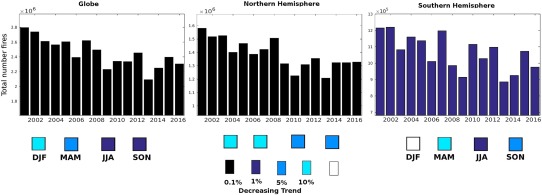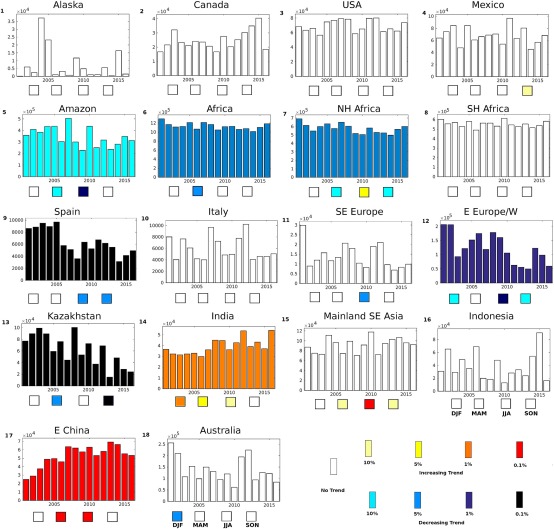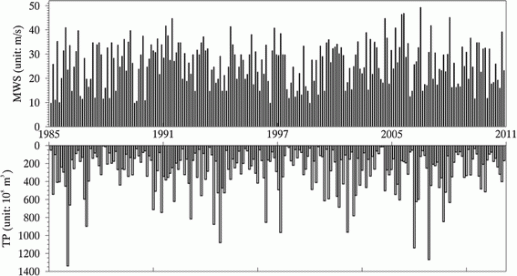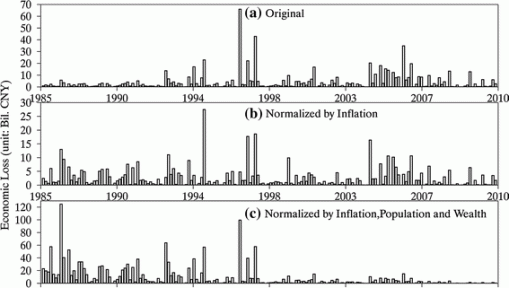
Welcome to issue #13 of my occasional newsletter on climate and energy issues. As a reminder, my day-to-day research and teaching is primarily focused on sports governance and various issues of science policy. But I’ve written a fair bit on the topics of climate and energy over the past 25 years, including two recent books and a boatload of academic papers.
Now that I’m no longer being investigated by Congress, the subject of a billionaire’s delegitimization campaign or receiving threats I’ve decided to start again writing a bit more on climate issues. So caveat lector!
A few things to say up front:
- If you appreciate the perspective, consider the tip jar to your right.
- These funds continue to help me defray the costs of several trips where I have had the chance to develop and present new talks. I am otherwise unfunded on this topic.
- As such, contributions are much appreciated and will be put to professional use.
- If you don’t like what I write or don’t like me, then don’t read what I write – no big deal, I’m just a professor with a blog.
- On the other hand, if you’d like to engage, consider a comment, Tweet @ me (@rogerpielkejr) or send an email. I am happy to discuss or debate. I’ve had great feedback on these newsletters so far.
- Social media warning: I’m happy to engage with anyone, but if you choose to tone troll me, call me names or lie about my views or writings (oh-so-common in discussing climate), then you will be muted or ignored. I am blocked on social media by some academics and journalists in the climate area and if you’d prefer not to see the views I present, there is always that option.
- Also, if you have a pointer or tip on climate science or policy, please send that along as well. Anonymity guaranteed for those who want it.
- Lastly, thank you for reading!
With that . . . this month I focus on disasters.
The Rightful Place of Science: Disasters & Climate Change, 2nd Edition
- My short book in the ASO/CSPO series has been comprehensively updated and revised. It has gone to press and will be available soon.
- You can pre-order it from Amazon here.
- If you are teaching a relevant course, I am happy to schedule a Skype lecture or discussion with your students. Just send me an email and we will sort things out.
- In the book are updated data on tropical cyclones, tornadoes, floods and drought. I also discuss the science of detection and attribution as performed under the IPCC, the unwise abandonment of the D&A IPCC framework in favor of event attribution studies, as well as a discussion of climate policy more generally.
WSJ: Some Good News–About Disasters of All Things

- Last week I had an op-ed in the WSJ on global disasters, available here
- Here is how I start:
- “In his posthumously published book “Factfulness,” the Swedish statistician Hans Rosling describes a paradox: “The image of a dangerous world has never been broadcast more effectively than it is now, while the world has never been less violent and more safe.” A case in point: natural disasters. The earth will always be volatile, but despite recent fires, volcanoes and hurricanes, humanity currently is experiencing a stretch of good fortune when it comes to disasters.”
- In it I observe the remarkable decline in lives lost to disasters over the past half century, a drop of 80%. There is still more to do, and vulnerabilities remain, but progress has been huge, and it is OK to say so.
- I also observe that losses (direct economic damage) have also decreased since 1990, when global data coverage allows for a reliable assessment. This too is good news.
- Disaster losses as a proportion of global GDP is an indicator to be tracked under the UN Sustainable Development Goals. I’ve got a paper on this topic presently under review.
Some Recent Papers I’ve Been Reading on Disasters and Extreme Weather
- Earl, N., & Simmonds, I. (2018). Spatial and temporal variability and trends in 2001–2016 global fire activity. Journal of Geophysical Research: Atmospheres, 123(5), 2524-2536.
- “There is a very strong decline in global fires (stat sig at the 0.1% confidence level; hereafter p < 0.001), present in each season except Dec–Feb (p < 0.1)” [see figure below]

- Regional trends are also interesting: “most of these large‐scale regions of the world exhibit little change or decreasing in fire activity except India (box 14) and China (box 17—…), with a weak nonsignificant signal in Canada” [see figure below]

- I’ll offer a brief editorial comment on this paper. The contrast between what this data shows and the public statements by some prominent climate scientists is jarring. Fires are not more common, in fact the data indicates the opposite.
- Of the US the authors write: “”The mainland United States (box 3) displays no 2001–2016 trend in [active fires] … This is also the case for the satellite‐based [burned area] studies (Andela et al., 2017; Giglio et al, 2013), though BA has been found to be increasing in some surface‐based U.S. studies (see Doerr & Santín, 2016). This is surprising, as the economic costs of wildfire in the United States have risen substantially in recent decades and from 1992 to 2012, with anthropogenically ignited wildfires accounting for 84% of all wildfires.”
- The case of fires appears quite similar to that of tropical cyclones in which every visceral tragedy is exploited by a few prominent activist scientists and journalists to suggest that things are getting worse, when in fact the evidence indicates that the opposite is true.
- I have come across two new papers that seek to normalize economic losses from tropical cyclones in China.
- Chen, Wenfang, et al. (2018). Hazard Footprint-Based Normalization of Economic Losses from Tropical Cyclones in China During 1983–2015. International Journal of Disaster Risk Science, 1-12.
- This analysis finds that normalized losses declined over the period 1983 to 2015, see figure below.

- Ye, Y., & Fang, W. (2018). Estimation of the compound hazard severity of tropical cyclones over coastal China during 1949–2011 with copula function. Natural Hazards, 1-17.
- This paper looked at time series in maximum wind speed and total precipitation over the period 1985 to 2011, finding no trends. See figure below.

- The paper also presented data on normalized losses, also finding a decrease over the period of study, see figure below.

- The trends in normalized documented in these two papers are consistent with trends observed in other ocean basins around the world as well as the overall decrease in disasters losses as a proportion of global GDP.
- Chen, Wenfang, et al. (2018). Hazard Footprint-Based Normalization of Economic Losses from Tropical Cyclones in China During 1983–2015. International Journal of Disaster Risk Science, 1-12.
- Boccard, N. (2018). Natural disasters over France a 35 years assessment. Weather and Climate Extremes.
- “the incidence of floods over mainland France is found to be stable over the last 35 years and even falling once we account for the heightened population pressure” [see figure below]

- “rates of forest fire destruction display a significative downward trend, the anthropogenic rate fell from about 5% to 2% (over the period 1973–2017) while the natural rate is about 100x smaller and likewise falling.”
- “The latter fact proves that the incidence of natural forest fires over the French mediterranean seaboard is receding over the last 44 years.”
- The bottom line? The scientific literature on disasters and climate change continues to be at extreme odds with frequent public representations found in the media and put forward by some leading scientists.

Reblogged this on Utopia – you are standing in it!.
LikeLiked by 1 person
Cliff Mass has a post up entitled- “California Wildfires: Is Global Warming Producing a New Normal? Part 1: Are CA Wildfires Becoming More Frequent?”
that concludes- “Clearly, climate change is only one possible factor in controlling fire frequency and may not be the most important.
More in future blogs .”
REF- http://cliffmass.blogspot.com/2017/12/are-california-coastal-wildfires.html
LikeLiked by 2 people